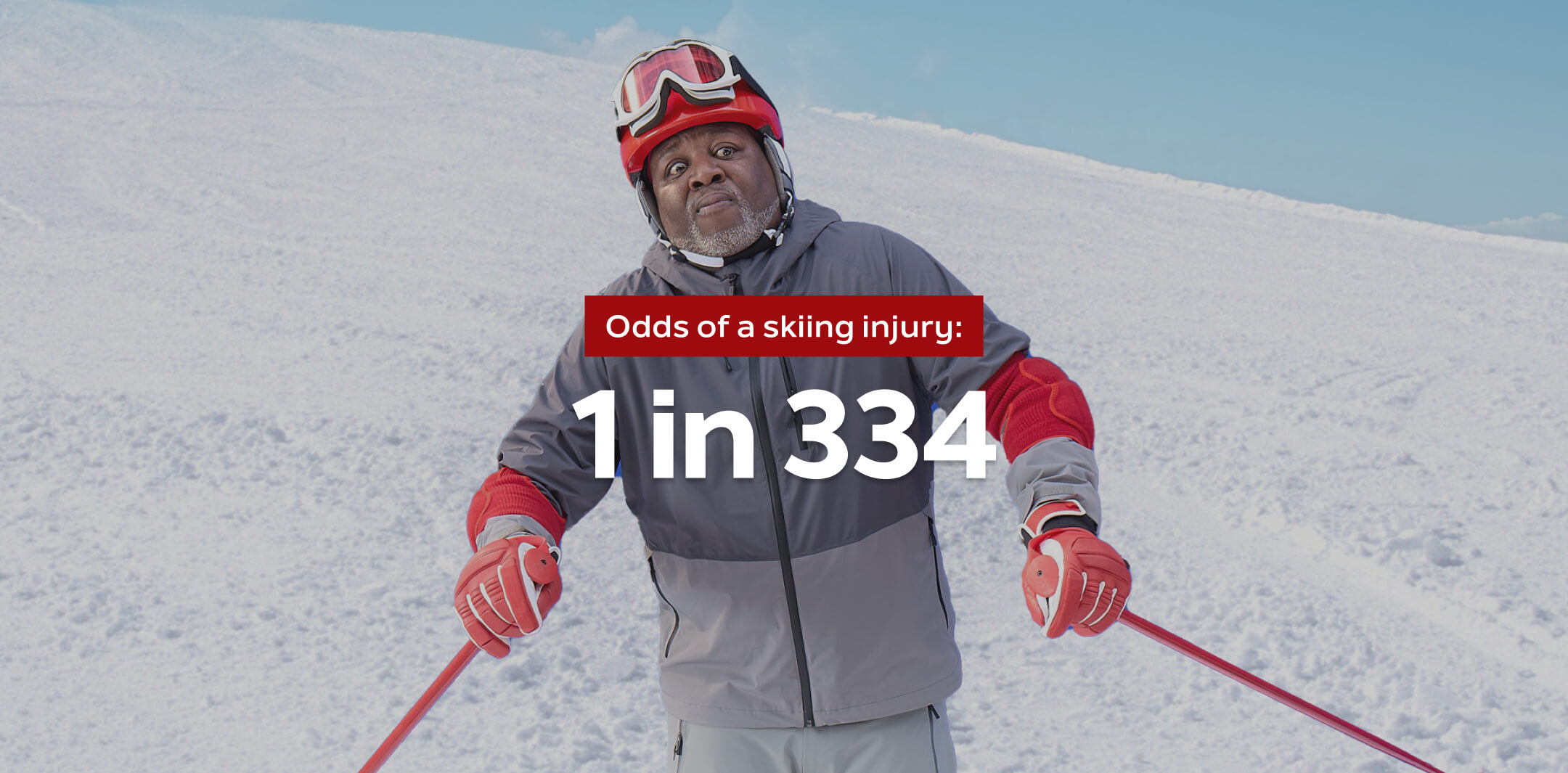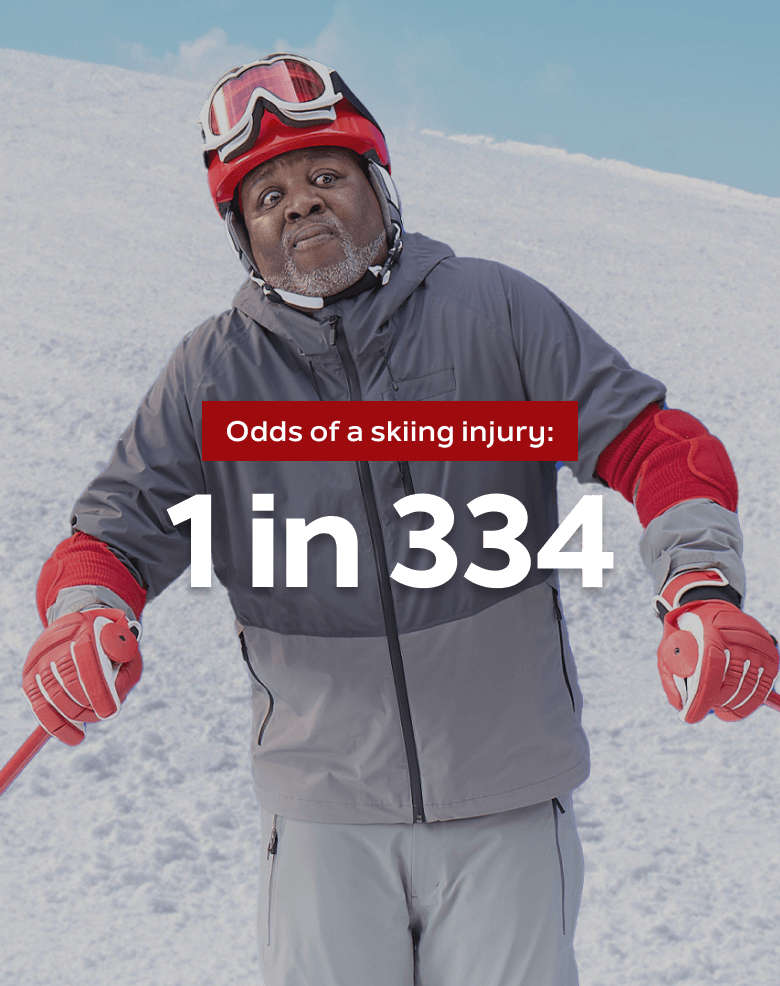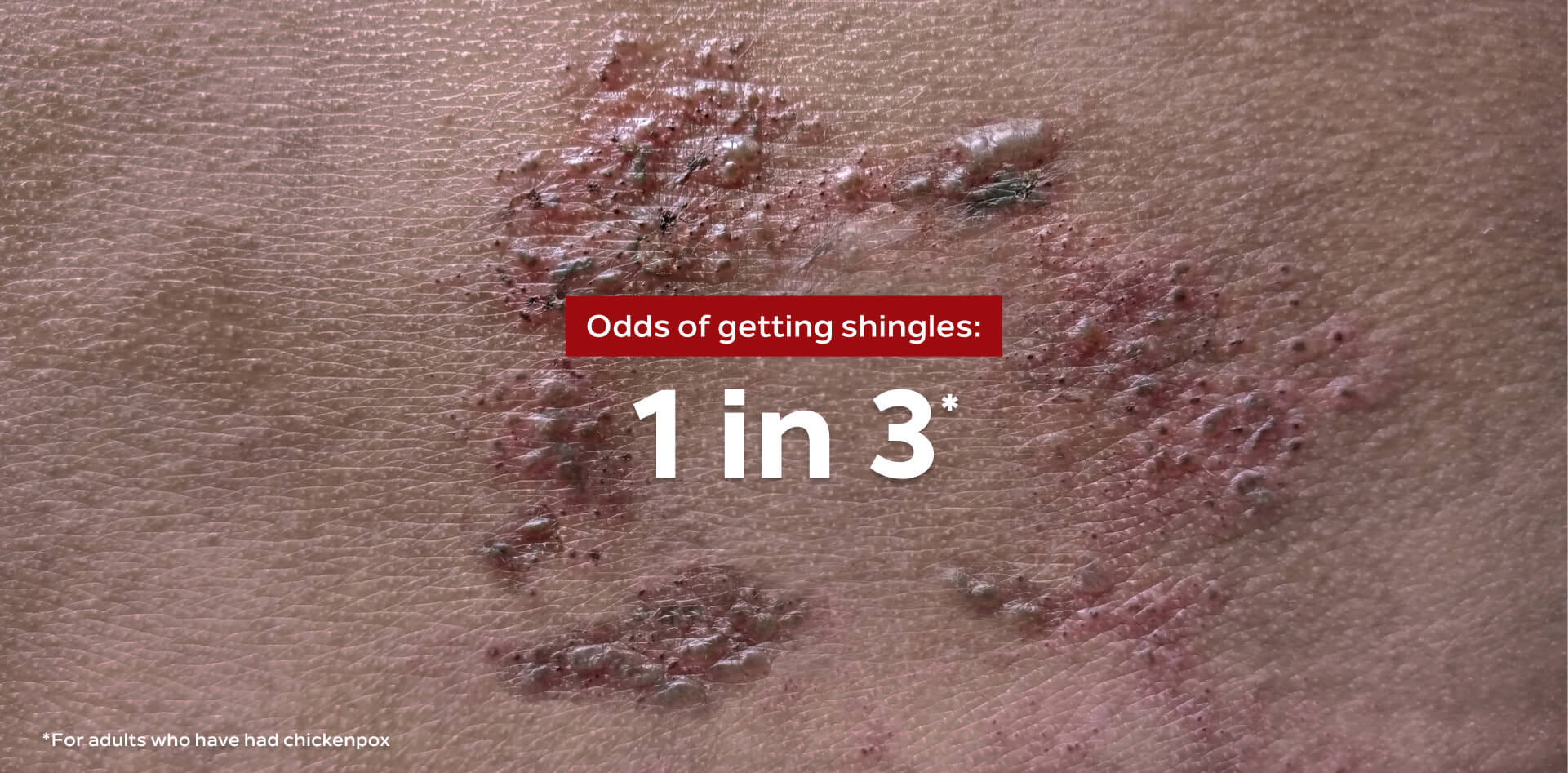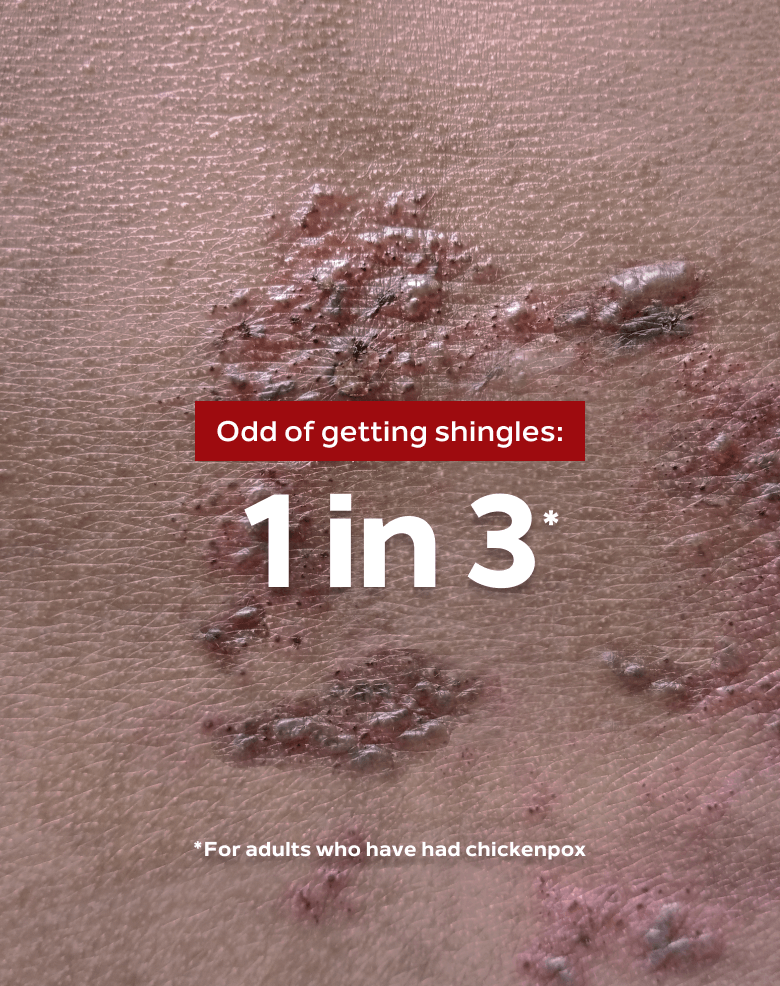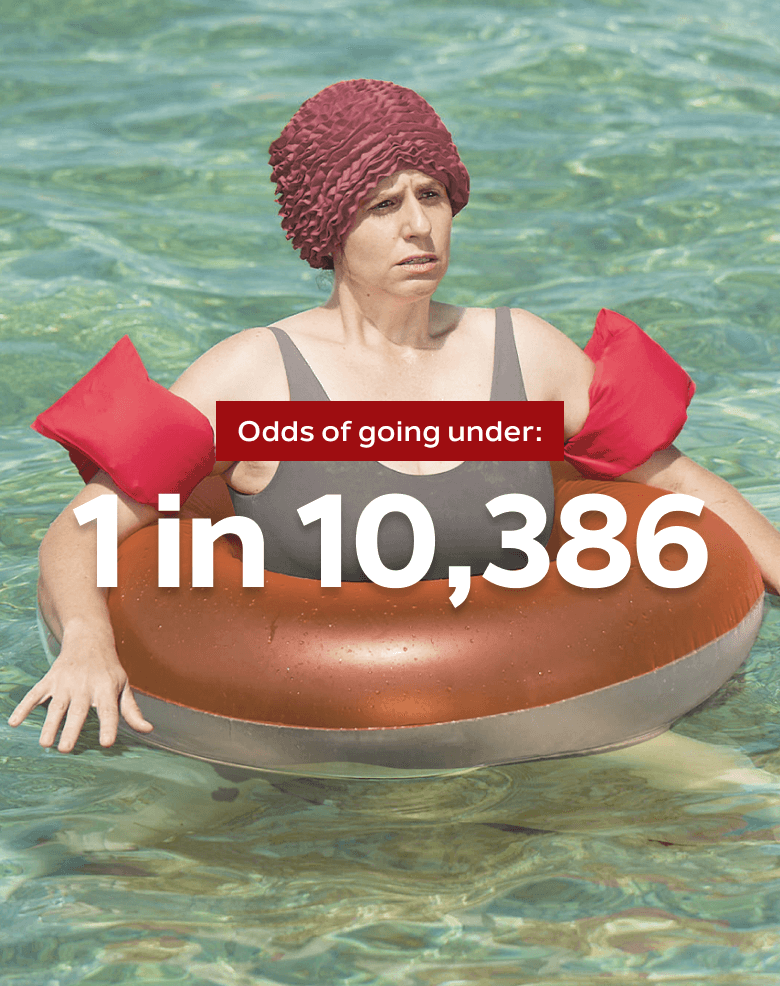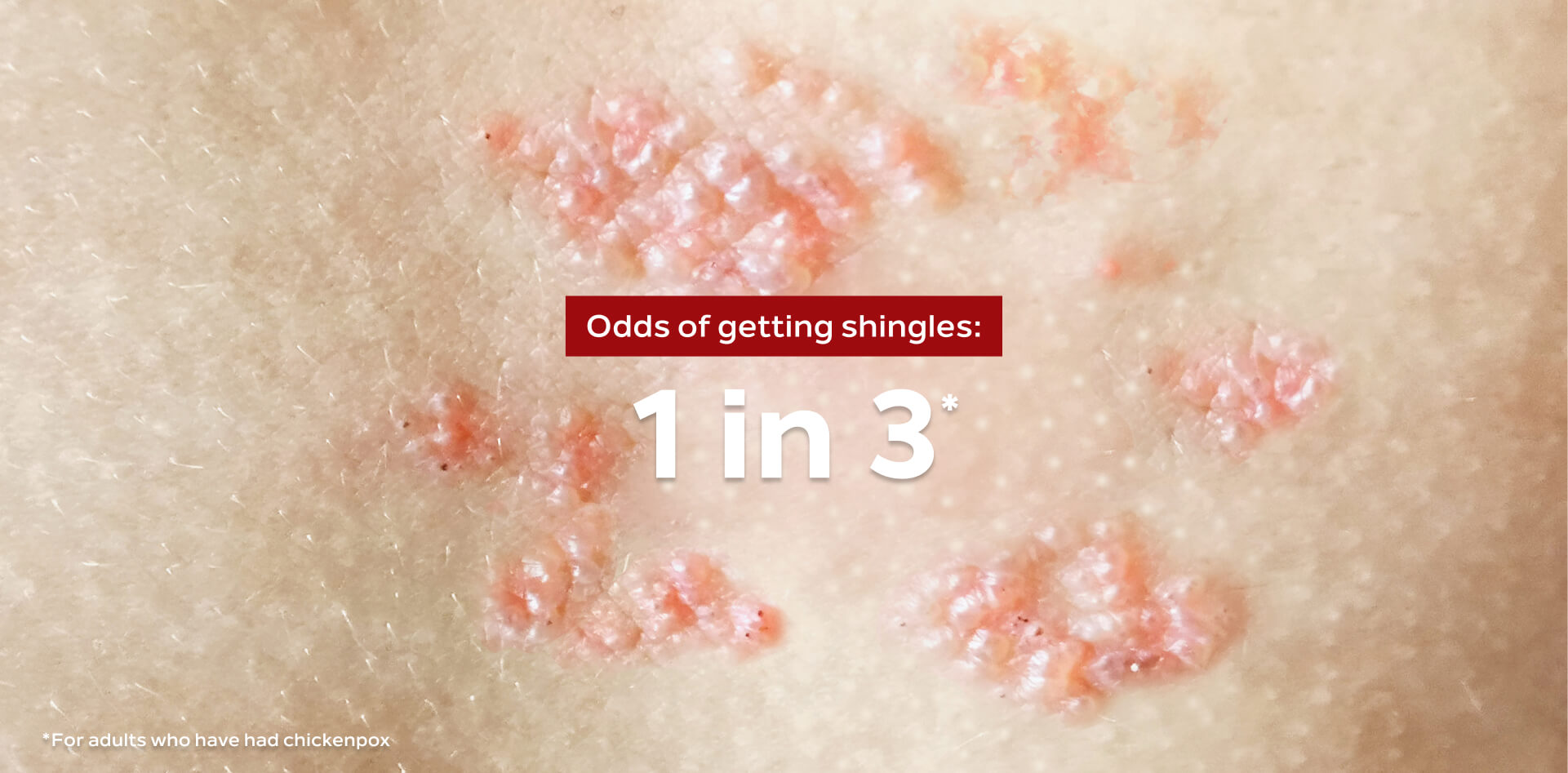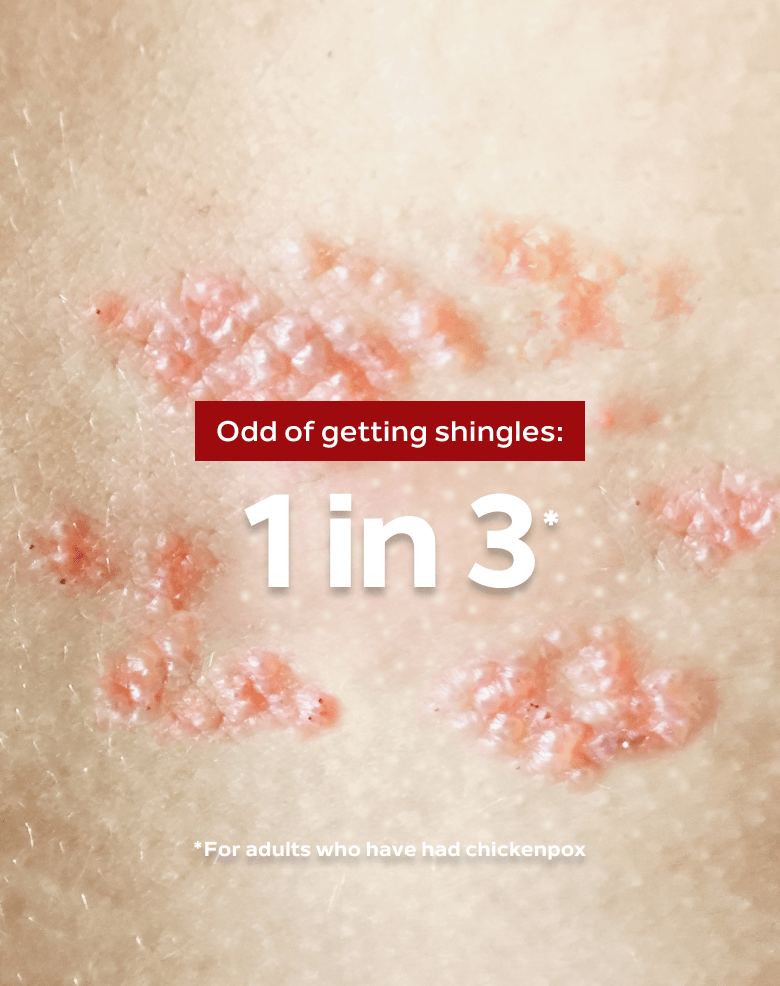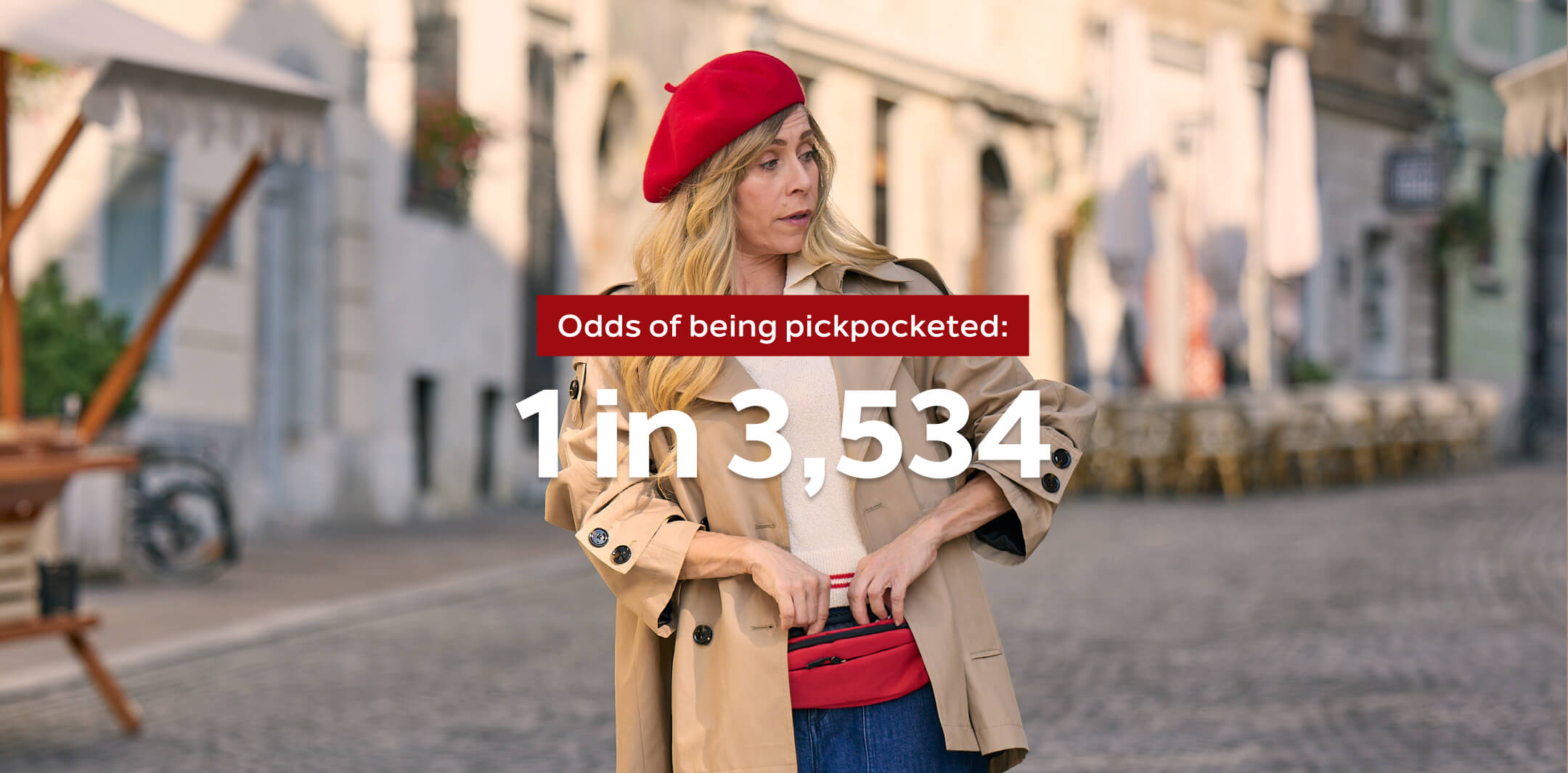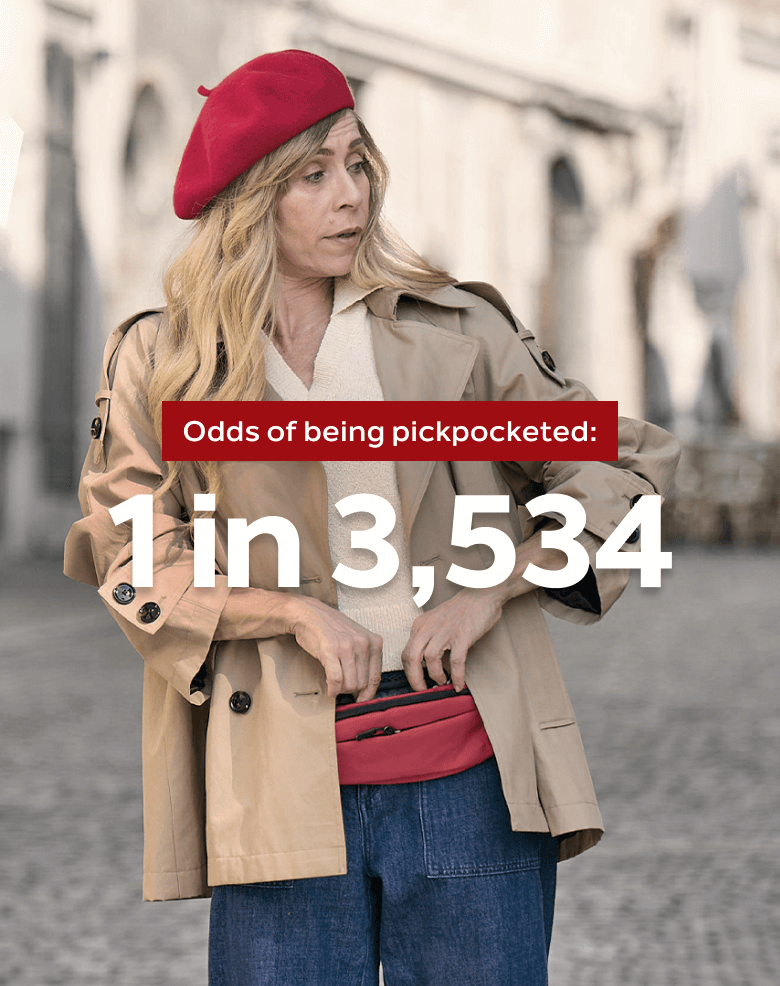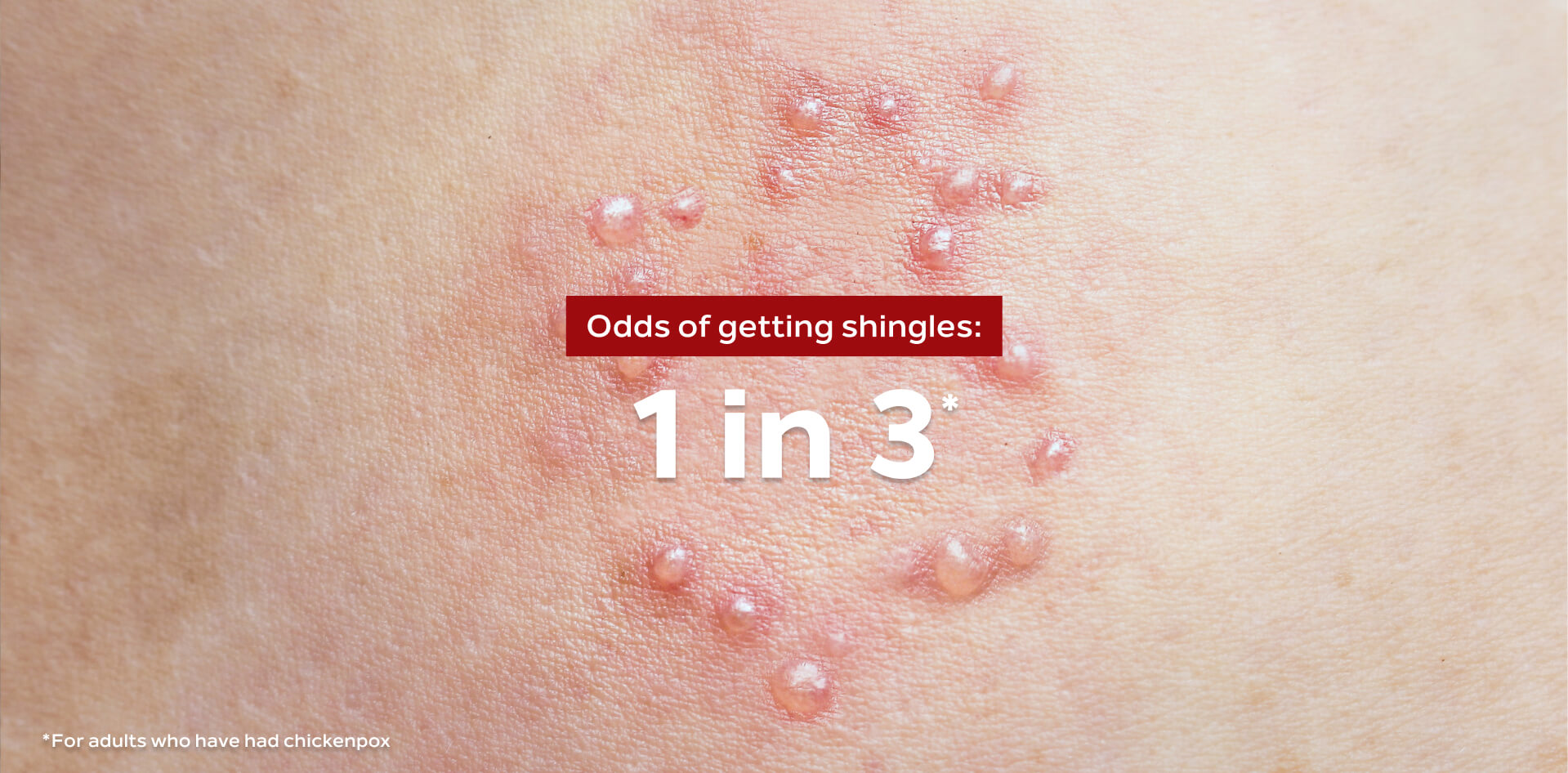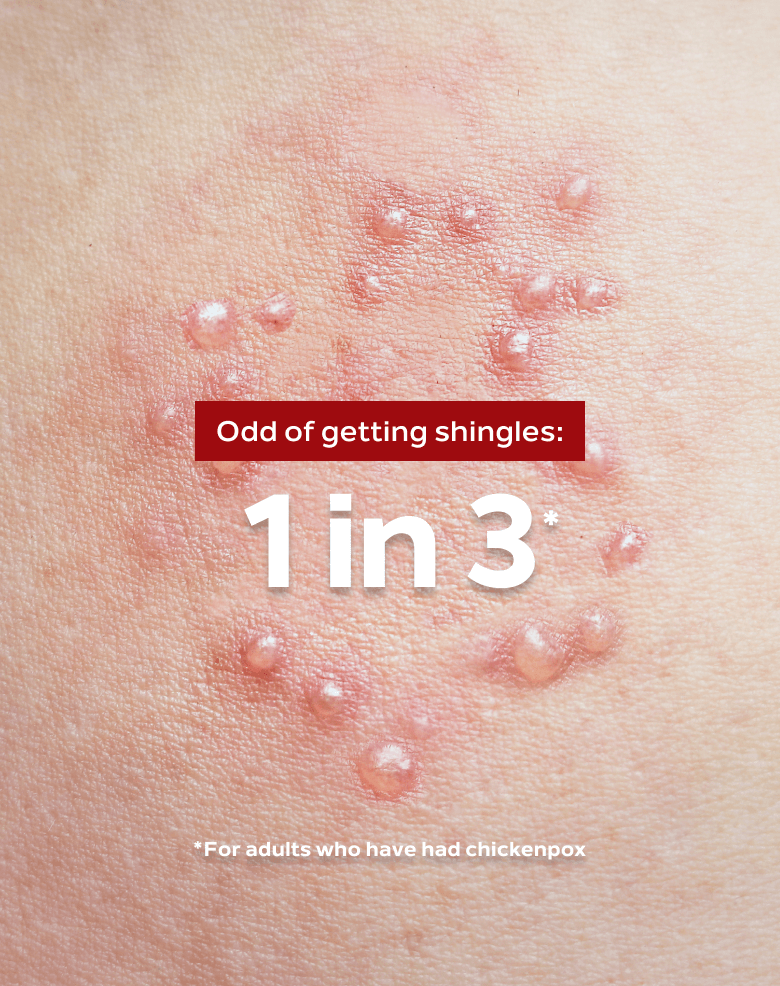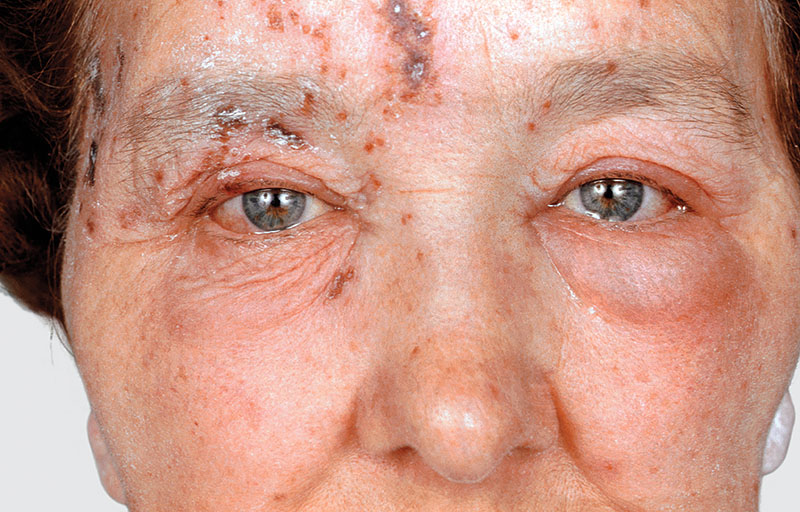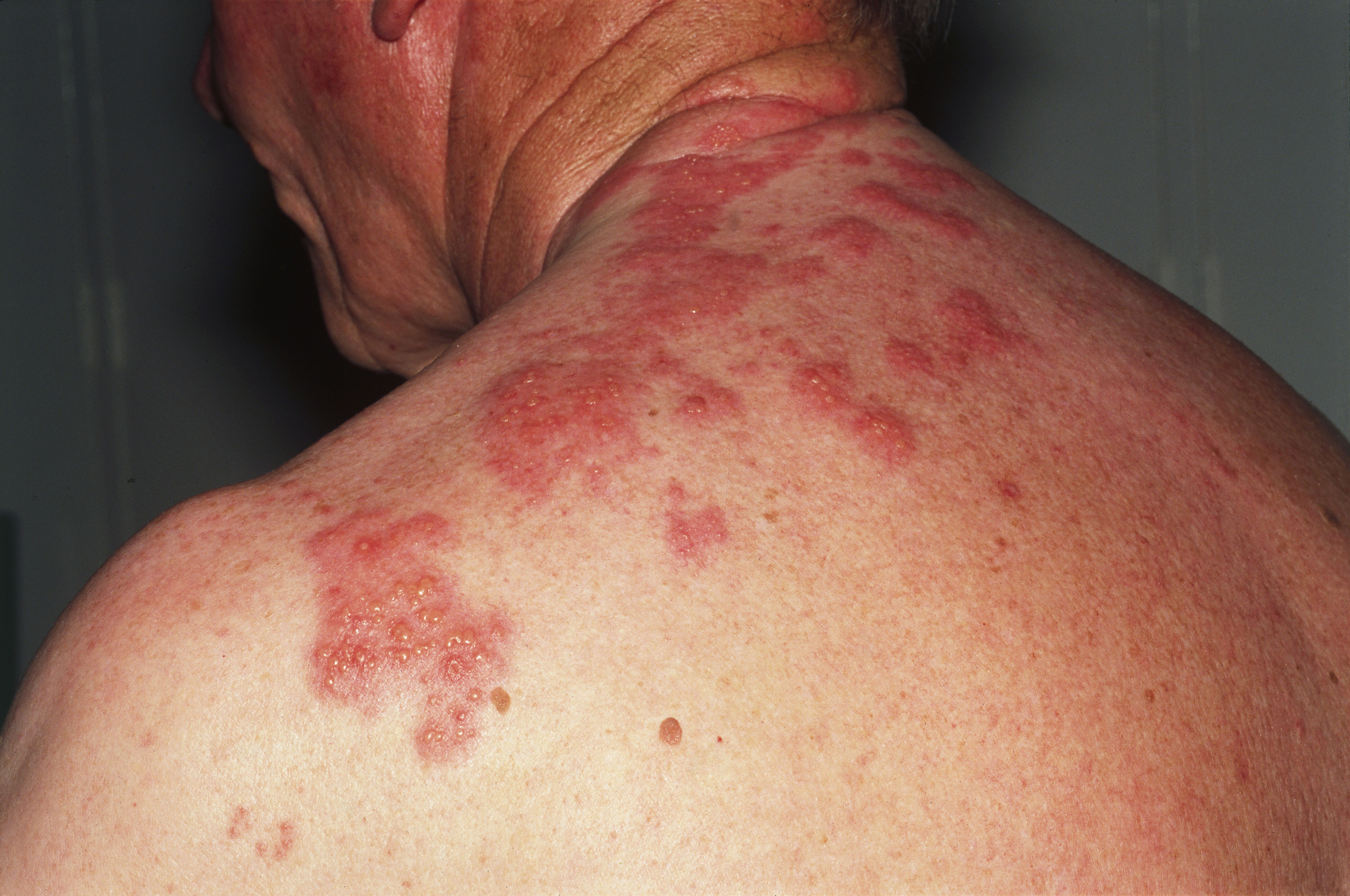Do you go out of your way to help protect yourself against unlikely events? Many of us do. But what about when you’re up against the odds?
About shingles
Facts about shingles
What is shingles?
- Shingles is a serious disease that can cause a blistering rash resulting in severe pain that has the potential to linger.
- The shingles rash usually occurs on one side of the body, such as the face, neck, or torso.
An estimated 1 in 3 adults, who have had chickenpox, get shingles in their lifetime.
What causes shingles?
- Shingles is caused by a virus. The shingles virus, also called the varicella zoster virus, is the same one that causes chickenpox.
- As we age, our immune system naturally weakens. As a result, the shingles virus may reactivate, increasing the risk of developing shingles.
Who can get shingles?
If you have had chickenpox—like over 90% of adults in Canada—you are at risk of developing shingles.
What factors may increase the risk of Shingles?
- Age: Shingles is most common in individuals aged 50 and older. Your risk increases with age.
- Certain health conditions:
- Diabetes: Increases risk by 24%
- Heart disease: Increases risk by 34%
- Chronic obstructive pulmonary disease (COPD): Increases risk by 41%
- Chronic renal disease: Increases risk by 29%
- Asthma: Increases risk by 24%
- Other factors: Risk can vary based on individual levels of immunosuppression.
A healthcare provider can help identify any other individual factors that may contribute to your risk of shingles.
What are some shingles symptoms?
- Shingles can result in a painful and blistering rash that can last several weeks. The pain can be severe, and may interfere with everyday activities, like getting dressed, walking, and sleeping.
- Shingles may lead to serious complications, such as chronic nerve pain (also called postherpetic neuralgia, or PHN), which can last for months or even years.
- Other symptoms may include:
- Burning, numbness or tingling
- Sensitivity to touch
- Fever
- Headache
- Vision problems/loss of vision
- Upset stomach
- Loss of hearing
GETTING YOUR FLU SHOT?
ASK ABOUT SHINGRIX TOO!*
* SHINGRIX can be given at the same time as the unadjuvanted seasonal influenza vaccine. The vaccines should be given at different injection sites.
The National Advisory Committee on Immunization (NACI) and the Comité sur l'immunisation du Québec (CIQ) recommend SHINGRIX for adults
50 years of age and older.
Ask your doctor, pharmacist, or nurse if SHINGRIX is right for you.
SHINGRIX
What you need to know about SHINGRIX
- SHINGRIX is a vaccine that helps protect adults against shingles (also called herpes zoster).
SHINGRIX can be given to adults 50 years and older, and adults 18 years and older who are or will be at increased risk of shingles due to immunodeficiency or immunosuppression caused by known disease or therapy.
- You will receive two SHINGRIX doses, with a gap of 2 to 6 months between doses.
- Based on your medical condition or planned treatments, your doctor may recommend that you receive the second dose 1 month after the first dose.
- To maximize the protection offered by SHINGRIX, it is important that you get both doses.
- When you get your first dose, ask your doctor, pharmacist, or nurse to schedule your next dose.
- SHINGRIX is specially designed to help the body build its protection against shingles, regardless of increasing age.
- In clinical trials, SHINGRIX was shown to be more than 90% effective at preventing shingles for people 50 years of age and older.
- SHINGRIX is not for the prevention of chickenpox, nor for the treatment or prevention of the pain or symptoms associated with shingles, or its possible complications.
Ask your doctor, pharmacist, or nurse to find out if SHINGRIX is right for you.
Thank you for signing up to receive a reminder when it is time to receive your second dose of SHINGRIX! You will receive an email shortly confirming your registration.
Thank you for signing up to receive a reminder when it is time to receive your second dose of SHINGRIX! You will be sent a confirmation text message. You must reply with YES to confirm your enrolment.
Thank you for signing up to receive a reminder when it is time to receive your second dose of SHINGRIX! You will receive an email shortly confirming your registration and you will also be sent a confirmation text message. You must reply with YES to confirm your enrolment.
Would you also like to add a reminder to your calendar? Use our calendar reminder tool below!
You can unsubscribe at any time by following the unsubscribe link found within the emails you receive or by clicking here.
FAQs
The SHINGRIX vaccine helps protect against shingles in adults. 100% protection not guaranteed. Adverse reactions may occur. SHINGRIX does not prevent chickenpox or treat shingles or its complications. SHINGRIX should not be used if you are allergic to any ingredient in the vaccine. Ask your healthcare professional if SHINGRIX is right for you. Full product information can be found at http://gsk.ca/shingrix/en. To report an adverse event, please call 1-800-387-7374.
Where can I get vaccinated with SHINGRIX?
